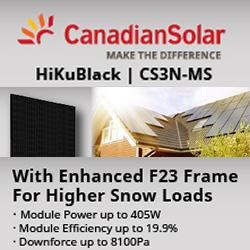Sales of Lithium-ion Batteries Soar with the Introduction of New Electric Vehicles
Technologies that help reduce emissions and lower dependence on petrol-based energy are gaining currency
MOUNTAIN VIEW, Calif. – Feb. 13, 2013 – The lithium-ion (Li-ion) battery market is racing ahead with the launch of eagerly awaited brands of electric vehicles (EVs) and hybrid EVs (HEVs). These types of vehicles are produced in much larger numbers than previous generations of EVs and HEVs, giving a boost to the installation of Li-ion batteries. Further, HEVs that previously used nickel-metal hydride (NiMH) technology are now shifting to Li-ion.
New analysis from Frost & Sullivan's (http://www.powersupplies.frost.com) Global Hybrid Electric and Electric Vehicle Lithium-ion Battery Market research finds the market earned revenues of $2.13 billion in 2012 and estimates this to reach $12.84 billion in 2019.
If you are interested in more information on this research, please email Britni Myers, Corporate Communications, at britni.myers@frost.com, with your full name, company name, job title, telephone number, company email address, company website, city, state and country.
The persistent volatility of crude oil prices turns the spotlight on more economical alternatives such as EVs to meet transportation needs, without compromising reliability and convenience. Owing to their environment-friendliness, the Li-ion battery market has significant government support in the form of rebates, which varies according to the country, state and city.
Rebates are further determined by the actual vehicle type including (hybrid, fully electric); extended range EVs (EREVs); and battery EVs (BEVs), all of which qualify for higher rebates than HEVs.
"Some municipalities and employers also promote these vehicles by offering premier parking spots and free charging stations," said Frost & Sullivan Energy and Environment Research Analyst Wesley Dean. "All these initiatives are increasing the sales of HEVs and EVs and thereby, Li-ion batteries."
While rebates and other promotional schemes do persuade consumers to invest in EVs, the biggest purchase factor is the initial investment cost for the vehicle. The high costs of the battery makes EVs less price competitive than the more traditional internal combustion engine (ICE) vehicles.
Manufacturers are attempting to tackle this cost challenge by increasing production volumes, improving efficiencies in production processes, and finding other suitable applications for these batteries to improve economies of scale.
Manufacturers are striving to establish standards as each battery company is hoping to identify the ideal battery chemistry and configuration. The lack of standards complicates the logistics and practicality of both battery swapping and second-life applications. Consumers also expect Li-ion batteries to provide superior vehicle performance, reliability, durability and range.
"EV and EV battery manufacturers will do well to educate their target audience about the total cost of ownership, performance and reliability advantages of EVs over their ICE-driven counter parts," noted Dean. "Meanwhile, they will continue to sign partnerships and joint ventures to facilitate sharing of resources, cost and risk mitigation, and the fostering of a cohesive technological environment guided by a single vision."
Connect with Frost & Sullivan on social media, including Twitter, Facebook, SlideShare, and LinkedIn, for the latest news and updates.
Global Hybrid Electric and Electric Vehicle Lithium-ion Battery Market is part of the Energy and Environment Growth Partnership Service program. Frost & Sullivan's related research services include: Global Inverter Market for Renewable Energy Systems, Global Nickel Battery Market, Analysis of the Global Thin-film Battery Market, and Annual Global Power & Energy Outlook 2012. All research services included in subscriptions provide detailed market opportunities and industry trends evaluated following extensive interviews with market participants.
About Frost & Sullivan
Frost & Sullivan, the Growth Partnership Company, works in collaboration with clients to leverage visionary innovation that addresses the global challenges and related growth opportunities that will make or break today's market participants.
Our "Growth Partnership" supports clients by addressing these opportunities and incorporating two key elements driving visionary innovation: The Integrated Value Proposition and The Partnership Infrastructure.
� The Integrated Value Proposition provides support to our clients throughout all phases of their journey to visionary innovation including: research, analysis, strategy, vision, innovation and implementation.
� The Partnership Infrastructure is entirely unique as it constructs the foundation upon which visionary innovation becomes possible. This includes our 360 degree research, comprehensive industry coverage, career best practices as well as our global footprint of more than 40 offices.
For more than 50 years, we have been developing growth strategies for the global 1000, emerging businesses, the public sector and the investment community. Is your organization prepared for the next profound wave of industry convergence, disruptive technologies, increasing competitive intensity, Mega Trends, breakthrough best practices, changing customer dynamics and emerging economies?
Contact Us: Start the discussion
Join Us: Join our community
Subscribe: Newsletter on "the next big thing"
Register: Gain access to visionary innovation
Global Hybrid Electric and Electric Vehicle Lithium-ion Battery Market
N9E7-27
Contact:
Britni Myers
Corporate Communications – North America
P: 210.477.8481
F: 210.348.1003
E: britni.myers@frost.com
Twitter: @Frost_Sullivan
Facebook: Frost & Sullivan
http://www.frost.com
Featured Product

Canadian Solar - HiKuBlack - Black Backsheet & Frame (Mono)
Aesthetic appearance for residential systems: With black backsheet & black frame, Power range 380 ~ 405 W, Low power loss in cell connection. Enhanced reliability: · Low temperature coefficient (Pmax): -0.34 % / °C, LID LeTID less than 2.0%, Lower hot spot temperature, Better shading tolerance.
